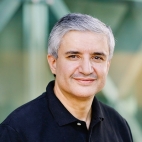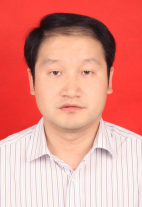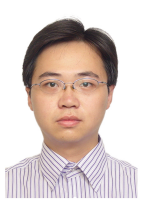|
Distinguished Professor Mohamed-Slim Alouini Fellow of IEEE, SPIE&OPTICA King Abdullah University of Science and Technology (KAUST), Saudi Arabia Mohamed-Slim Alouini, was born in Tunis, Tunisia. He earned his Ph.D. from the California Institute ofTechnology(Caltech) in 1998 before serving as a faculty member at the University of Minnesota and later at Texas A&M University at Qatar. In 2009, he became a founding faculty member at King Abdullah University of Science and Technology (KAUST), where he currently is the Al-Khawarizmi Distinguished Professor of Electrical and Computer Engineering and the holder of the UNESCO Chair on Education to Connect the Unconnected. Dr. Alouini is a Fellow of the IEEE and OPTICA and his research interests encompass a wide array of research topics in wireless and satellite communications. He is currently particularly focusing on addressing the technical challenges associated with information and communication technologies (ICT) in underserved regions and is committed to bridging the digital divide by tackling issues related to the uneven distribution, access to, and utilization of ICT in rural, low-income, disaster-prone, and hard-to-reach areas. Speech Title: "Tapping into the full potential of the Stratosphere" Abstrcat: High-Altitude Platform Stations (HAPS) are emerging as a key complement to LEO satellite mega-constellations, offering a scalable solution for global connectivity and bridging digital divides where terrestrial and satellite networks fall short. Operating from the stratosphere, HAPS leverage advanced beamforming and free-space optics (FSO) to deliver high-capacity and low-latency communications across diverse geographical areas. This talk explores the technological connectivity advancements driving HAPS by highlighting how intelligent beam management and optical feeder and inter-HAPS links can democratize broadband access and provide also unique solutions for disaster recovery, paving the way for a more connected world.
Prof. Qingshan Liu Nanjing University of Posts and Telecommunications, China Qingshan Liu is currently a Vice President and a Professor at Nanjing University of Posts and Telecommunications. His primary research areas are pattern recognition and image understanding. He has published over 300 academic papers with more than 16,300 citations according to Google Scholar. In recent years, Professor Liu has led and undertaken several major projects, including the National Distinguished Youth Fund Project, National Key R&D Projects, and National Natural Science Foundation Key Projects. He has been recognized with numerous honors, such as the Ministry of Education's Distinguished Professor, the Ministry of Science and Technology's Leading Talent in Innovation for Young and Middle-aged Scientists, Jiangsu Province's Leading Talent in Innovation and Entrepreneurship, Jiangsu Province's Outstanding Educator, and Jiangsu Province's Distinguished Professor. He achieved several academic awards, including the first prize of science and technology of Jiangsu Province and the second prize of natural science of the Ministry of Education, China. Additionally, his team received six times winners or honorable-mentioned prizes at two famous competitions, ImageNet and 300 Faces In-The-Wild Challenge. Speech Title: "Two Pionts in Embodied Vision Research: 3D Perception and Affective Computing" Abstract: With the rapid development of large model technology, AI research has entered a new fast track, and embodied intelligent systems with robots as carriers have become a new research focus in the field of AI, where 3D spatial perception serves as the foundation for embodied intelligent systems to interact with the external environment. Meanwhile, human-computer interaction that integrates both emotional and intelligent capabilities has long been a key technology awaiting breakthroughs in the field of AI, and the research on robots with both emotional and intelligent capabilities has been selected by the China Association for Science and Technology (CAST) as one of the ten major scientific issues in 2024. From the perspective of visual perception in embodied intelligence, this report presents the team's research explorations and progress in 3D perception and affective computing in recent years.
Prof. Zhaoxiang Zhang Chinese Academy of Sciences, China Zhaoxiang Zhang received his bachelor’s degree from the Department of Electronic Science and Technology in the University of Science and Technology of China (USTC) in 2004. After that, he was a Ph.D. candidate under the supervision of Professor Tieniu Tan in the National Laboratory of Pattern Recognition, Institute of Automation, Chinese Academy of Sciences, where he received his Ph.D. degree in 2009. In October 2009, he joined the School of Computer Science and Engineering, Beihang University, as an Assistant Professor (2009-2011) and an Associate Professor (2012-2015). In July 2015, he returned to the Institute of Automation, Chinese Academy of Sciences. He is now a full Professor in the Center for Research on Intelligent Perception and Computing (CRIPAC) and the National Laboratory of Pattern Recognition (NLPR). He is also an Adjunct Professor in The Hong Kong Polytechnic University (PolyU). His research interests include Computer Vision, Pattern Recognition, and Machine Learning. Recently, he specifically focuses on deep learning models, biologically-inspired visual computing and human-like learning, and their applications on human analysis and scene understanding. He has published more than 200 papers in international journals and conferences, including reputable international journals such as IEEE T-PAMI, IJCV, JMLR, IEEE TIP, IEEE TNN, IEEE TCSVT, IEEE TIFS and top level international conferences like CVPR, ICCV, NIPS, ICLR, ECCV, AAAI, IJCAI and ACM MM. He is serving or has served as the Associated Editor of IEEE T-CSVT, Patten Recognition, Neurocomputing, and Frontiers of Computer Science. He has served as the Area Chairs of top level International conferences like CVPR, NIPS, ICML, AAAI, IJCAI and ACM MM. He is a Senior Member of IEEE, a Distinguished Member of CCF, and a Distinguished member of CAAI.
More speakers are updating.
|



